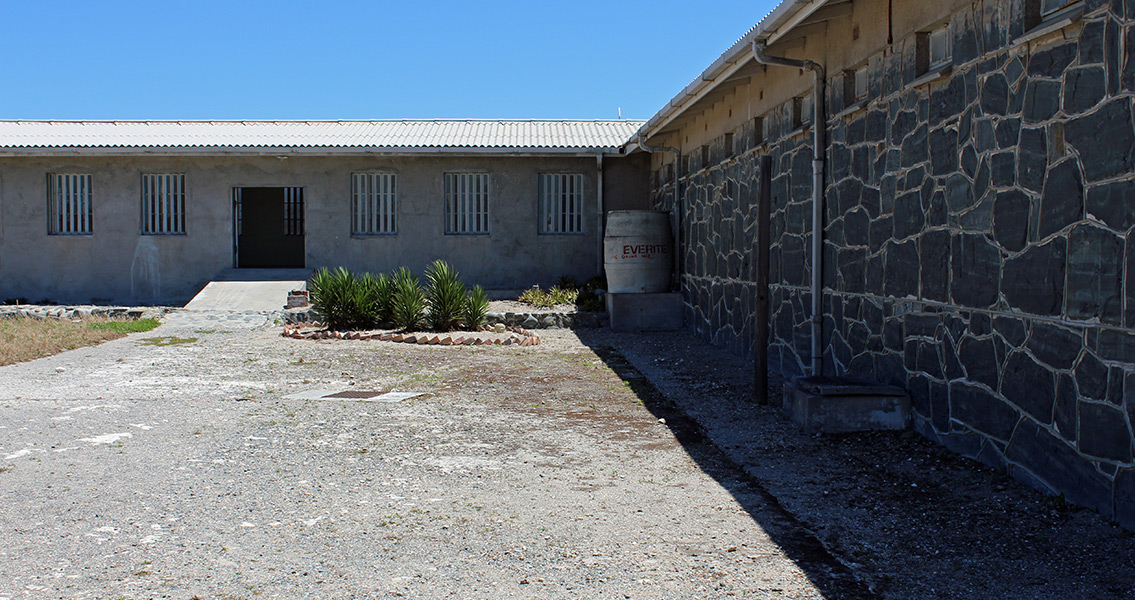<![CDATA[On 10th June, 1980, a letter from the imprisoned Nelson Mandela which had been smuggled out of Robben Island prison was read out in a public statement by the African National Congress. The letter, a call to arms against apartheid, came sixteen years into Mandela's prison sentence for treason. Mandela was born on 18th July, 1918, in the South African village of Mvezo. His father, Gadla Henry Mphakanyiswa, was the chief of the Thembu tribe, meaning Mandela was raised as a member of royalty. Mandela's mother, Nosekeni Fanny, was the third of Mphakanyiswa's four wives and had nine children with him. The first in his family to receive a formal education, after progressing through primary and secondary school Mandela entered the University of Fort Hare, an elite institution and the only 'European' styled University available to Black-South Africans at the time. In 1940, Mandela and several other students were sent home from the University for having taken part in a protest against University policies - hinting at the activism which would become so central to Mandela's life. Eventually Mandela completed his education as a lawyer at the University of Witwatersand, while also becoming increasingly involved in the movement against racial discrimination. In 1944, he joined the African National Congress (ANC) and established the political party's youth league. His commitment to politics became stronger following the 1948 election, when the victorious Afrikaner party implemented a formal system of racial segregation and classification: apartheid. The ANC embarked on a campaign of non violent protest against the new apartheid laws, involving civil disobedience, strikes and boycotts. Mandela, the party's deputy, traveled across the country to organise protests, promoting the manifesto known as the Freedom Chart. In 1952, Mandela co-founded South Africa's first law firm for Black-Africans, offering low cost legal advice to those whose lives had been affected by the apartheid legislation. As the ANC's campaigns gathered a wider authority, Mandela became an increasingly well known figure in South African politics. A fundamental turning point in the conflict between the ANC and the ruling white minority took place in 1960, when 69 protesters were killed by police in the township of Sharpeville. The massacre seemed to prove that peaceful protest was both ineffective and potentially dangerous, making the call for militant resistance even greater. Mandela helped form a paramilitary group within the ANC, the 'Spear of the Nation', in 1961. On trial several years later, he justified the transition to militant means of protest, "It was only when all else had failed, when all channels of peaceful protest had been barred to us, that the decision was made to embark on violent forms of political struggle." In 1962 Mandela was arrested for illegally leaving South Africa, and sentenced to five years in jail at the notorious Robben Island prison. In June 1964 he was again put on trial, alongside several other ANC leaders, and convicted of treason. He received a life sentence. For eighteen years he was confined to Robben Island, a former Leper colony, where he was forced to work hard labour in a lime quarry. The cells on the island had no bed or plumbing, and Mandela received fewer rations than other inmates because he was a Black-African political prisoner. Severe restrictions were also placed on Mandela's ability to communicate with the outside world, he was only allowed to see his wife once every six months and similar restrictions were placed on his opportunities to write correspondence. Nevertheless, Mandela did not disappear during his time in prison. He organised civil disobedience campaigns among the prisoners in an attempt to gain better conditions. He wrote his autobiography, 'Long Walk to Freedom', and completed a Law bachelors at the University of London via correspondence. In 1980 Oliver Tambo, his partner in the law firm established in the 1950s, organised the 'Free Nelson Mandela' campaign, which would go on to have an international reach. Throughout the 1980s international pressure mounted on South Africa to repeal the apartheid laws. Mandela was moved from Robben Island, and placed under house arrest. The election of F.W. de Klerk in 1989 signaled the beginning of the end of apartheid. The ban on the ANC was lifted, and on February 11th Mandela was released. Image courtesy of Wikimedia Commons user: HelenOnline]]>
Mandela's Letter From Prison Read in Public
